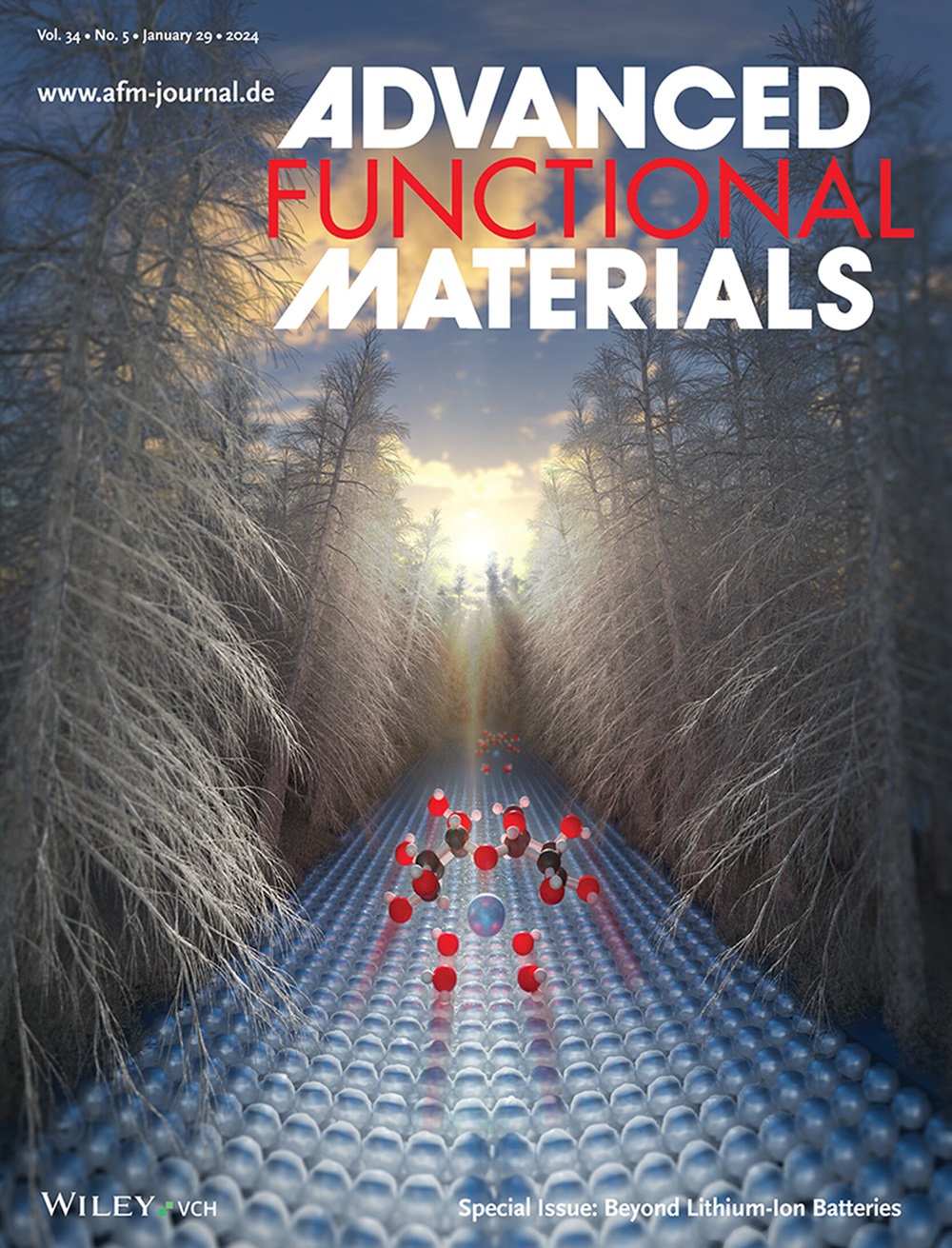Mechanically Robust Lubricating Hydrogels Contrived by Harnessing Low-Entropy Nanocrystalline Polymer Network
IF 18.5
1区 材料科学
Q1 CHEMISTRY, MULTIDISCIPLINARY
引用次数: 0
Abstract
Hydrogels with extraordinary mechanics hold tremendous application prospects in the field of artificial human load-bearing tissues, but the invention of cartilage-like hydrogels with unprecedented mechanical robustness and dependable lubricity is still a substantial challenge. Herein, a low-entropy nanocrystalline domains network control strategy is proposed to construct mechanically robust poly (vinyl alcohol)/chitosan (PVA/CS) hydrogels with superior and durable lubrication performance. Consequently, the resulting PVA/CS hydrogels feature tunable mechanical performance by altering interaction between PVA and CS in the polymer network, spanning fracture strength, elastic modulus, toughness, and stretchability. Furthermore, its friction coefficient against the Al2O3 ball keeps as low as 0.034 for 1 × 105 reciprocating cycles at 5 N, 1 Hz with water as the tribological medium, and even no destructive wear is found after friction test. To exploit the applications, PVA/CS hydrogels are processed into a femoral head and rubbed against swine acetabulum and found to have comparable lubricating properties to natural animal cartilage, positioning it as a superior competitor within the realm of durable lubricating hydrogel systems. This work corroborates the supposition that inducing polymer chains to form low-entropy nanocrystalline domain structures is able to yield robust hydrogels with extraordinarily enhanced mechanical performances.

利用低熵纳米晶聚合物网络制备机械坚固的润滑水凝胶
具有非凡力学性能的水凝胶在人造人体承载组织领域有着巨大的应用前景,但如何发明具有前所未有的机械坚固性和可靠润滑性能的软骨状水凝胶仍然是一个重大挑战。为此,提出了一种低熵纳米晶域网络控制策略,以构建具有优异耐用润滑性能的机械鲁棒性聚乙烯醇/壳聚糖(PVA/CS)水凝胶。因此,通过改变聚合物网络中PVA和CS之间的相互作用、跨越断裂强度、弹性模量、韧性和拉伸性,得到的PVA/CS水凝胶具有可调节的机械性能。在5 N, 1 Hz条件下,以水为摩擦介质,往复1 × 105次,其与Al2O3球的摩擦系数低至0.034,且摩擦试验后无破坏性磨损。为了开发应用,PVA/CS水凝胶被加工成股骨头,并与猪髋臼摩擦,发现其具有与天然动物软骨相当的润滑性能,将其定位为耐用润滑水凝胶系统领域的优越竞争对手。这项工作证实了诱导聚合物链形成低熵纳米晶结构的假设,能够产生具有显著增强机械性能的坚固水凝胶。
本文章由计算机程序翻译,如有差异,请以英文原文为准。
求助全文
约1分钟内获得全文
求助全文
来源期刊

Advanced Functional Materials
工程技术-材料科学:综合
CiteScore
29.50
自引率
4.20%
发文量
2086
审稿时长
2.1 months
期刊介绍:
Firmly established as a top-tier materials science journal, Advanced Functional Materials reports breakthrough research in all aspects of materials science, including nanotechnology, chemistry, physics, and biology every week.
Advanced Functional Materials is known for its rapid and fair peer review, quality content, and high impact, making it the first choice of the international materials science community.
 求助内容:
求助内容: 应助结果提醒方式:
应助结果提醒方式:


